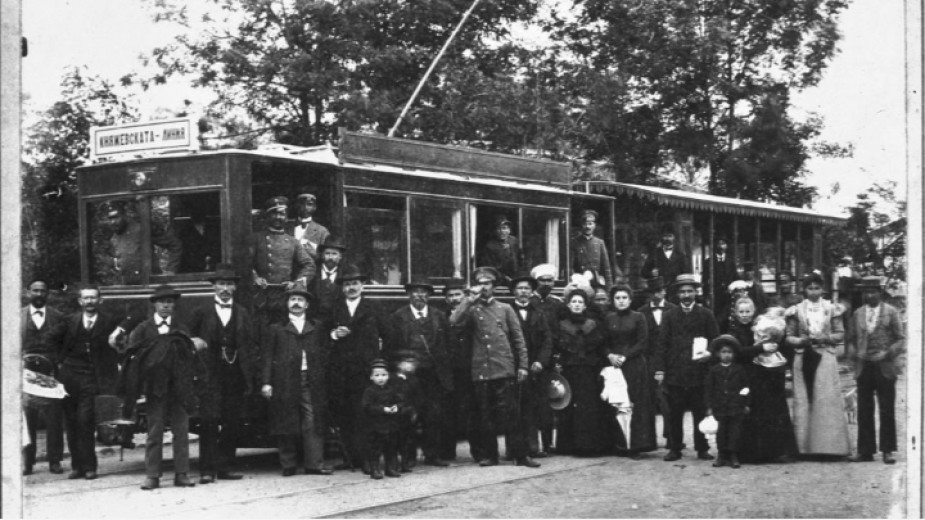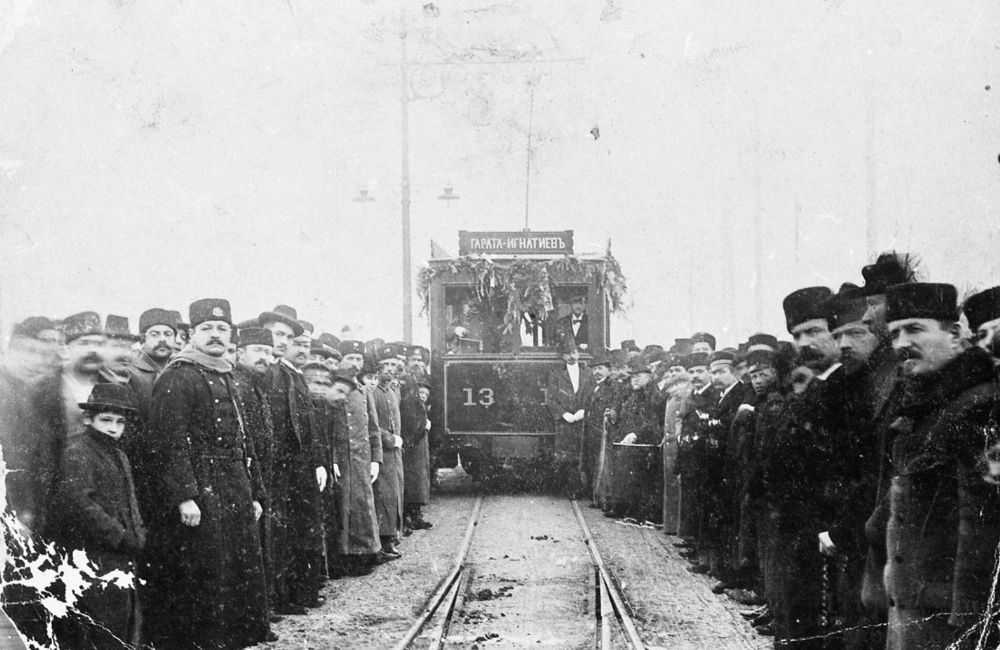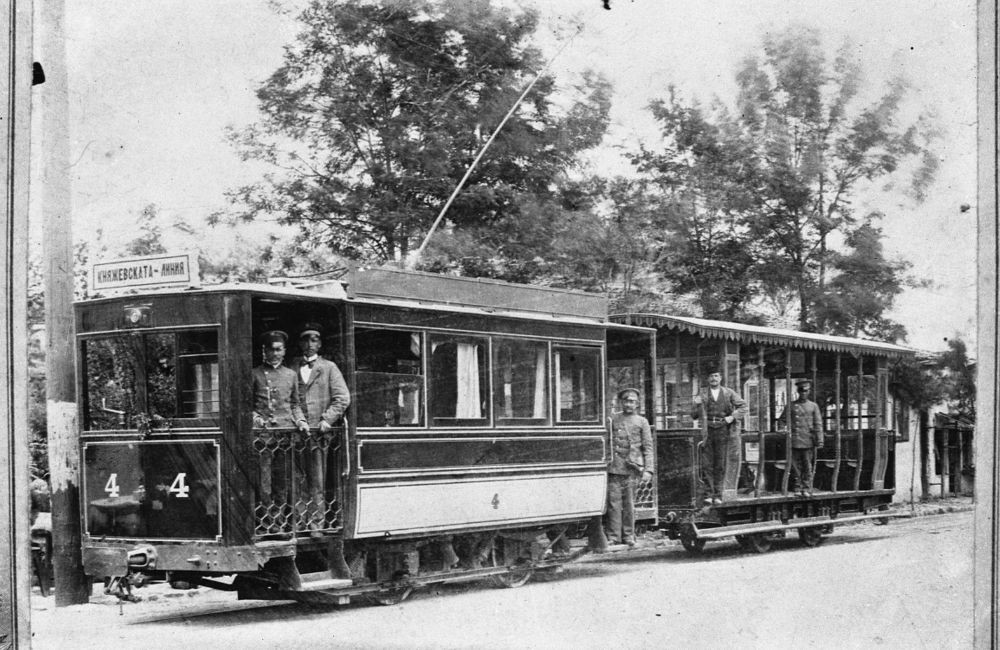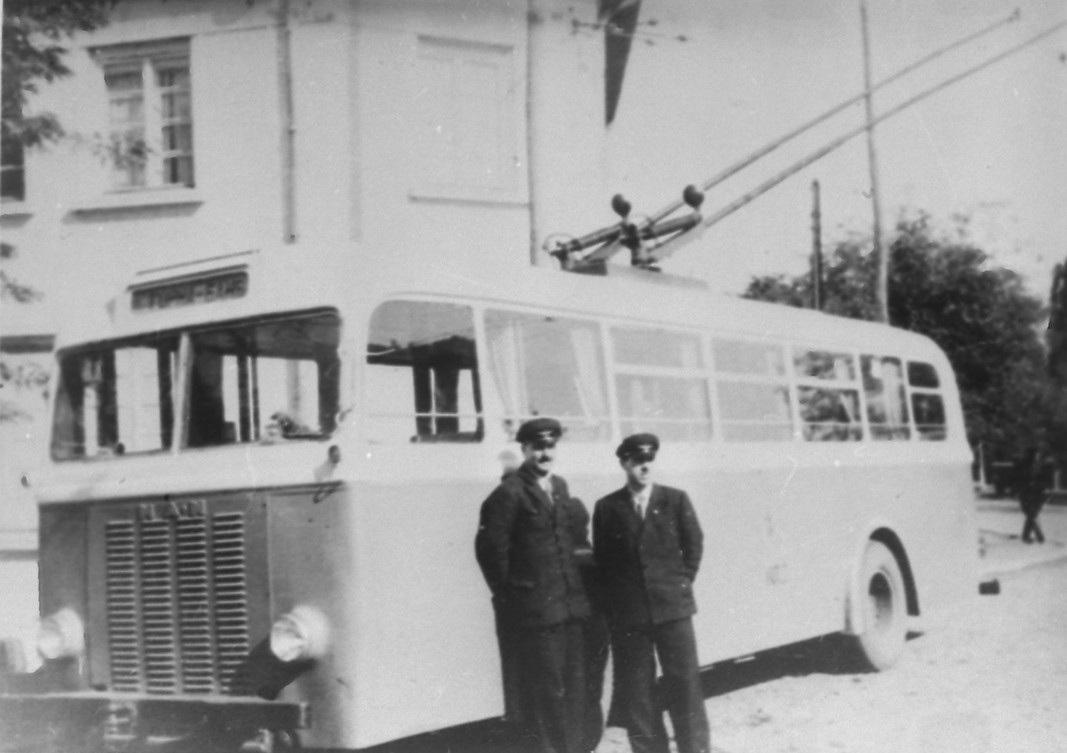 4
4
News about the public transport in the capital city of Sofia is not always positive. A decade ago the cause was old and polluting rolling stock, but today it is a lack of funds for drivers' salaries and maintenance, high fuel and electricity prices and a drop in the number of passengers caused by the Covid-19 pandemic. However, now we focus on curious details from the history of the public transport system in Sofia. That is why we met Darian Georgiev, who has thoroughly researched it. The first information about public transportation in Sofia in the form of horse-drawn omnibuses dates back to the end of the 19th century. In the beginning of the 20th century the first trams were already moving across Sofia.
"In 1901 six tram lines were opened. The first tram was moving through the center of the city. One route started from the Central Railway Station and ended at St. Nedelya church. The other line passed on Targovska Street and the third went on the route of today's tram lines 20 and 22 - from Strandzha Street to Poduene Station,” Darian Georgiev says in an interview with Radio Bulgaria.

At that time Sofia did not have the appropriate administrative structure with the capacity to manage this type of modern transport and the city's electrical network. But in 1898 the municipality had signed a contract with a French company to maintain the network, as well as a contract with a Belgian company for delivery of tramcars.

"In the very beginning there was no separate company for tram transport in Sofia," our guide through the history of public transport in the capital says. "The city was served by a Belgian company. The first trams were Belgian-made. The trains that arrived shortly before the First World War are from the Zeppelin brand and were moving along the line to the Knyazhevo district. Later, contracts with companies such as Siemens, Man, Breda and others followed. The first Bulgarian tram car was produced in 1924 by the team of engineer Teodosii Kardalev.”

The first trams, manufactured entirely in Bulgaria emerged in the 1950s when the “Republic” tram started moving along the route of tram №5. The expansion of the tram network and the emergence of 10 new lines in the 50's necessitated the production of other models of rolling stock. This is how the "Cosmonaut", "Komsomolets", "Bulgaria 1300" and "Sofia" trams emerged.
But when did trolleybuses become part of the traffic in the streets of the capital? Darian knows the answer.
“In 1941 the first trolleybus line started operating, connecting Knyazhevo with the then-village of Gorna Banya. During and after the World War II this type of transport stopped developing but in the 1950s the construction of trolleybus lines was resumed. The rise of passenger flow, especially in the southern districts of Sofia, necessitated the purchase of many new vehicles. In the early 1960s, the Sofia Directorate of Trolleybus Transport signed a contract with company Skoda for the supply of several hundred units of the 9 TR model. These trolleybuses became the most common not only in Sofia, but in all of Bulgaria at that time.”

Apart from being a researcher of the history of public transport, Darian Georgiev is also a passionate collector of scaled-down models, some of which he makes himself. Residents and guests of the capital can see some of them in a special exhibition, which will remain under the dome of the Largo /situated between the buildings of the Council of Ministers, the Presidency and the Central Department Store/ until June 23. In addition to the models of the capital's electric transport vehicles, the visitors can also take a look at the urban environment, captured into the paintings by artist Irina Ivanova.
English version: Alexander Markov
Photos: Regional History Museum - SofiaTeodora Byalkova joined the Bulgarian Sunday school "Sts. Cyril and Methodius" in Athens in the 2022/23 school year. At that time, she also organized the dance formation "Ludi-Mladi" for current and graduated students. Since then, the..
The village of Novo Selo is located on the road between Veliko Tarnovo and Sevlievo. Here archaeologists have found tools used by people during the Chalcolithic, which testify to an active economic life in the area. There is also..
The mountain resort of Bansko is set to become the capital of mountaineering culture, adventure, and travel, featuring films, exhibitions, and presentations that detail the limits of human possibility. From November 19 to 23, the "Bansko Film..

+359 2 9336 661
